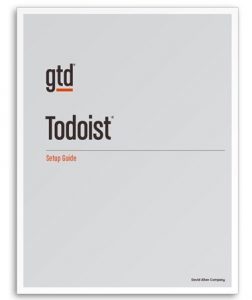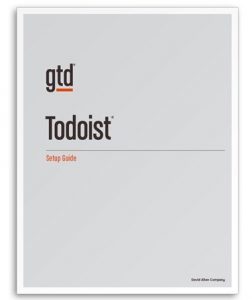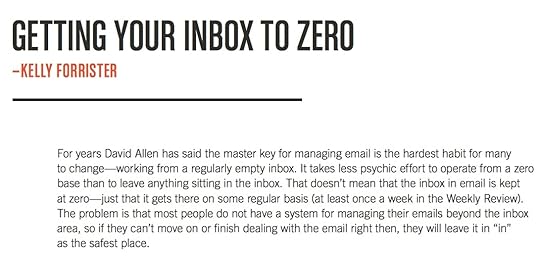David Allen's Blog, page 43
January 18, 2018
Turning Inside Out
 I am beginning to get it. The ultimate ingredient for really getting things off my mind is to nurture the part of me that lives from the inside out.
I am beginning to get it. The ultimate ingredient for really getting things off my mind is to nurture the part of me that lives from the inside out.
Now, when I say, “I’m beginning to get it,” please keep in mind that I’ve been “beginning to get it” for at least 50 years, consciously, and perhaps for millennia before that. It seems the nature of this earthly challenge is to recognize the value of focus on the inner life amidst an outer one that is so easily all-encompassing, on so many levels. It indeed makes no sense to “go inside” if the physical, mental, and emotional senses are what I’m hooked into. But there is a “beyond that” or “beneath that” or “inside that” which I have experienced as very real—more so in impact and energy than any of what I think, feel, and touch.
Lest you think this is only an essay about the spiritual life, I can assure you I have found very practical reasons to operate on the working hypothesis that there’s more of me to me than I know. One way is in trying to resolve a paradox that I have grappled with for many years—how much do I “let things happen” as they might, trusting that the world and my life in it are flowing onward in a natural way; and how much should I set my own goals and objectives, and march toward them with conscious determination and effectiveness?
I have discovered there is no answer to that, as long as I have that question. And I only have that question when I have been ignoring my own inner quiet place for too long. When I let go of my attention on this world and let myself drop back into the subtler and larger places I have access to, in meditation, contemplation, and simple reflective moments, the questions fade away. I find myself in the paradoxical state of surrendering to a larger flow and consciously creating my next directions and outcomes. It’s like I’m being breathed, but I’m also what’s breathing.
There are times for me to let things just show up, and respond. There are times for me to make it up and make it happen. I just need to pay attention to the music. And when I do, it’s all the same dance.
–David Allen
This essay appeared in David Allen’s Productive Living Newsletter. Subscribe for free here.
The post Turning Inside Out appeared first on Getting Things Done®.
January 6, 2018
GTD & Procrastination
Procrastination. I hear it all the time. My clients confide in me, “I am procrastinating on sending in the contract/mailing the  gift/fixing the appliance/etc…” you name it, I’ve heard it. And just between us, I used to think I was the ultimate procrastinator.
gift/fixing the appliance/etc…” you name it, I’ve heard it. And just between us, I used to think I was the ultimate procrastinator.
When I first heard David Allen say that the type of people who procrastinate the most are the creative, bright and sensitive ones, I perked up and thought to myself, “Hey, that’s me! Smart and imaginative, how did he know? And how very kind of him to describe us (people who procrastinate) that way…”
The one example that stands out to me of how the GTD methodology resolves procrastination, happened a few years ago… the engine light flashed on in my car. My first thought was, “This is going to cost me thousands of dollars and that’s not in my budget.” I didn’t want to think past the doom and gloom of how much it was going to cost. Also, the idea of getting my car fixed meant figuring out so many other logistics, like do I take it to the car dealership or my own mechanic? On top of that not having a car meant having to coordinate carpooling for myself and my family. The general inconvenience and the unknown overwhelmed me. Every time I would get into the car the engine light would go on and all those thoughts would be triggered in my head. For a couple of seconds I would feel the anxiety but soon I would be distracted by something else and forget about it.
Three months later after seeing the engine light go on yet again, I thought to myself, “OK, this is ridiculous. I need to practice what I preach.” I took out some paper and asked myself what I would like the SUCCESSFUL OUTCOME to be. Just like the engine light in my car, a light went off in my head. I wrote down: R&D engine light in car. Then I asked myself, “What’s the NEXT ACTION to get there?” So I wrote down: Call the car dealership and ask them about the engine light. I started to notice that even though I hadn’t made the call and didn’t know what the outcome of that call would be I felt so much better. I took a moment to reflect on why suddenly I didn’t feel so overwhelmed and stressed about my engine light.
I realized that the two things I did that caused me to procrastinate were:
1) I had a negative definition of the outcome (too much money that I didn’t have in my budget)
2) I focused on the complexity involved in getting it fixed which overwhelmed me so I did nothing.
What I did that got it moving was:
1) I changed the negative definition of the outcome to a positive definition that motivated me (R&D engine light in car)
2) I clarified and defined the next action which simplified what I needed to do so I could relax about the complexity around it. (Call car dealership about engine light in car.)
All this required was a few minutes of focused thinking. Within two weeks my engine light was handled and ended up costing a whole lot less than what I had imagined.
Now, this is just one small example from my life. But I think it has had an enormous impact on me because it’s magnified by the professional and personal decisions, possibilities and responsibilities that come my way each day. It makes sense that this methodology can handle any amount of volume or intensity.
–Meg Edwards
Meg is a coach with GTD Focus, the exclusive partner for the delivery of Getting Things Done® (GTD®) individual coaching in the United States and Canada.
The post GTD & Procrastination appeared first on Getting Things Done®.
January 2, 2018
GTD and Todoist
 Our new GTD & Todoist Setup Guide is now available in our online store!
Our new GTD & Todoist Setup Guide is now available in our online store!
This Guide will show you how to:
– Understand the fundamental GTD best practices
– Optimally configure Todoist in the way we have found works best for GTD
– Integrate your actionable email
– Create project and next actions lists in Todoist
– Create useful reference lists
– Use Labels and Filters effectively
… and more!
Available in Letter or A4 PDF Download.
If you’re a GTD Connect monthly or annual member (not free trial), it’s free for you in the members-only document library on GTDConnect.com.
The post GTD and Todoist appeared first on Getting Things Done®.
January 1, 2018
EPISODE #37 – Tips for a Year-End Review
The new year is always a great excuse to zoom out and recalibrate how your system is running, and a year-end review is an excellent way to do exactly that. In this conversation that first showed up on GTD Connect, David Allen & Coach Kelly Forrister give us some quick and practical tips for successfully performing a year-end review.
For more coaching tips on doing a yearly review, join David and Kelly on January 18, 2018 for a members-only webinar on GTD Connect on Aligning Your Agreements for 2018. Open to all monthly and yearly GTD Connect members (sorry, not available on free trial). The webinar will give you an opportunity to take a deeper look at what you’ve agreed to and how aligned it is with the experience you want in 2018. Login to GTDConnect.com to sign up for the webinar, using the link on the home page. Questions about becoming a member or registering for the webinar? Contact our team at connect@davidco.com.
Listen Now
Subscribe or Download
iTunes
Stitcher
Libsyn
Google Play Music
Spotify
SoundCloud
The post EPISODE #37 – Tips for a Year-End Review appeared first on Getting Things Done®.
Tips for a Year-End Review
The new year is always a great excuse to zoom out and recalibrate how your system is running, and a year-end review is an excellent way to do exactly that. In this conversation that first showed up on GTD Connect, David Allen & Coach Kelly Forrister give us some quick and practical tips for successfully performing a year-end review.
For more coaching tips on doing a yearly review, join David and Kelly on January 18, 2018 for a members-only webinar on GTD Connect on Aligning Your Agreements for 2018. Open to all monthly and yearly GTD Connect members (sorry, not available on free trial). The webinar will give you an opportunity to take a deeper look at what you’ve agreed to and how aligned it is with the experience you want in 2018. Login to GTDConnect.com to sign up for the webinar, using the link on the home page. Questions about becoming a member or registering for the webinar? Contact our team at connect@davidco.com.
Listen Now
Subscribe or Download
iTunes
Stitcher
Libsyn
Google Play Music
Spotify
SoundCloud
The post Tips for a Year-End Review appeared first on Getting Things Done®.
December 26, 2017
GTD and Todoist
It’s here! The new GTD & Todoist Setup Guide is now available in our online store. Or, if you are a paid GTDConnect.com member, it’s free for you in your members-only document library. The Guide is packed with tips from our coaches on how to get the most out of Todoist for GTD.

The post GTD and Todoist appeared first on Getting Things Done®.
December 20, 2017
The Big Secret About Goal Setting
 Goals are tools, not golden calves.
Goals are tools, not golden calves.
I was facilitating a senior level discussion in a medical technology company, and they were grappling with the issue of the role of R&D and how to “fill the pipeline” with new products that would keep them competitive. As one top exec proposed some aggressive goals for the number of new products created and developed within the next 18 months, another equally top exec challenged “Why set goals for R&D? What difference will it make? What will anyone do differently because some committee gave them a number like that to produce?”
It is not unusual to find many people jaded at best about the value of goal-setting, given the stress created by what are often perceived as artificial expectations decreed from on high.
There is always the dilemma of trying to set targets low enough to be realistic, but high enough to be galvanizing, exciting, and challenging.
This is a topic for endless business books and motivation pundits. I just want to highlight one perspective I’ve found very useful over the years: The value of goals is not in the future they describe, but the change in perception of reality they foster, in the present.
What we focus on changes what we notice. Our brain filters information, seeing one thing in a situation instead of something else, based on what we identify with, what we have our attention on. In one meeting optometrists notice who is wearing eyeglasses, affirmative action advocates notice the ratio of minorities in the group, and interior designers notice the color schemes.
Similarly, if you stop for a minute and give yourself permission to imagine five years from now, if your life could be as fabulously spectacular as you could possibly imagine, what might a weekend afternoon be like? Reading great reviews of your best-selling book? Sailing the ocean in your own boat? Feeling relaxed, inspired, and having great fun with plenty of free time to read, play with kids, explore new hobbies…?
Now imagine how good it could be ten minutes from now. Likely there will be different images that you will generate or perceive.
Both are exercises in fantasy. Each will give instructions to our mind to search for information that will be relevant to the pictures. Which is better? Depends on whether you’d like to start noticing sailing magazines, ideas for a book, or creative ways to have more discretionary time. That information is all around you, all the time. But if you’re not wired up to perceive it with a focus that opens you to it, you’ll think it doesn’t exist.
The reason for long-term goals is the permission they give us to identify with the greatest optimistic picture of ourselves and our world we can so it changes our filtered perceptions. We need to have believable images to identify with; and the more time we give ourselves, the more realistic they may seem. The future never shows up—have you noticed?—it’s always today! But playing with it as a working blueprint can be a remarkably useful tool to see things (and how to do and have them) that you never saw before, right now. The most innovative companies are the ones with the biggest goals.
The future is an illusion, but a handy one.
–David Allen
This essay appeared in David Allen’s Productive Living Newsletter. Subscribe for free here.
The post The Big Secret About Goal Setting appeared first on Getting Things Done®.
December 15, 2017
Episode #36 – Overcoming Procrastination
Listen to a fascinating segment with David Allen where he outlines the sources of procrastination, shares a few fun examples of the dynamics at work, and talks about the steps you can take to overcome it.
Listen Now
Subscribe or Download
iTunes
Stitcher
Libsyn
Google Play Music
Spotify
SoundCloud
The post Episode #36 – Overcoming Procrastination appeared first on Getting Things Done®.
December 11, 2017
GTD Tips for Getting Your Inbox to Zero
Looking for a quick summary on how to get your inbox to zero? Click here for a helpful free article from one of the GTD coaches.

November 21, 2017
Get a Grip on Your Process, or Give It Up
If you’re not willing to commit to keeping your head completely empty, it’s not worth trying to make any “personal management system” work. Give it  up. Don’t kid yourself. Throw your productivity tools away.
up. Don’t kid yourself. Throw your productivity tools away.
OK, I’m becoming more direct and succinct. (At 72 I think that serves us both, and I choose not to beat around the bush.) But I’m also getting a bit bored with people half-heartedly attempting half-implemented solutions as they attempt to do “just a part of” GTD and complaining about it “not sticking” with them. Now, a partial engagement with this methodology won’t really hurt (and can create some minor wins), but it produces such a minuscule fraction of the value possible if you go all the way. People who say they are “doing GTD” are still showing me half-filled-out lists of still-undecided stuff in their system. They may have a few folders set up, a couple of next-action lists; but a majority of their stuff is still scattered from tables to briefcases to kitchen drawers to their heads—all un-retrievable in any consistent fashion.
Stop complaining about your stress and your overwhelm! Look outside—the universe is not stress-out or confused. It’s fine. It’s only the way we are engaged with it that creates our negative reactions. GTD is the process we’ve uncovered that creates appropriate engagement. What you’re dealing with at hand may not be easy or fun, but being in the driver’s seat about it moves that experience to a much more mature and effective level. But If you’re not willing to make this process really work, 100%, don’t tire yourself with the pretenses of half-baked solutions. They just add insult to injury, and quite frankly, may not be worth the energy to continue.
It’s like trying to keep air in only three tires on your car. Hello. IT WON’T DRIVE WITHOUT THEM ALL! If you’re going to flop along anyway, don’t waste your energy trying to keep just a couple in good shape.
Either your head is the place to keep track of stuff, or it’s not. You’d have a hard time intellectually justifying something in-between. If you use a calendar at all, you’ve already admitted you need external support to manage your life.
But, hey, why not? Just keep it all in your head, throw away your calendar, and trust that you’ll have what you need for information and perspective whenever you need it. If you had the guts to really do that, 100%, it might work. I might actually try that some day. Until then I will be responsible to the creative process that I’m born with, frequently makng agreements with myself and others that I need to define, clarify, track, and renegotiate regularly, to get off my own back and to make meaningful things happen.
But, if there’s only part of all this in your system and only a part in your head, you won’t trust either place to give you appropriate guidance. You’ll be driven in your choices of what to do by simply the latest and loudest things in your psyche. Good luck.
OK, I admit it—I’m just projecting some of my own frustrations with the resistance to full-out execution of the Getting Things Done process that I have encountered with so many people, and the unfortunate give-up energy I have seen from people who “fell off the wagon.” Don’t take me too seriously. Most people haven’t really had the game defined so they could see how the partial solutions are no solution. But if you have…
Give yourself a break. If you’re going to play this game the way you are trying to play it, you’d better really play it.
Write it down. Anything, everything. Decide what your intention is about it, and what the next step would be. Do the action, delegate the action, or defer the action to your list of optional things to do. Look at all that regularly. Be conscious about what you’re doing, and what you’re not. Get free. You should be focusing all your energy on bigger issues, greater joy, and more expanded opportunities.
Thanks for listening.
–David Allen
This essay appeared in David Allen’s Productive Living Newsletter. Subscribe for free here.
David Allen's Blog
- David Allen's profile
- 1485 followers



